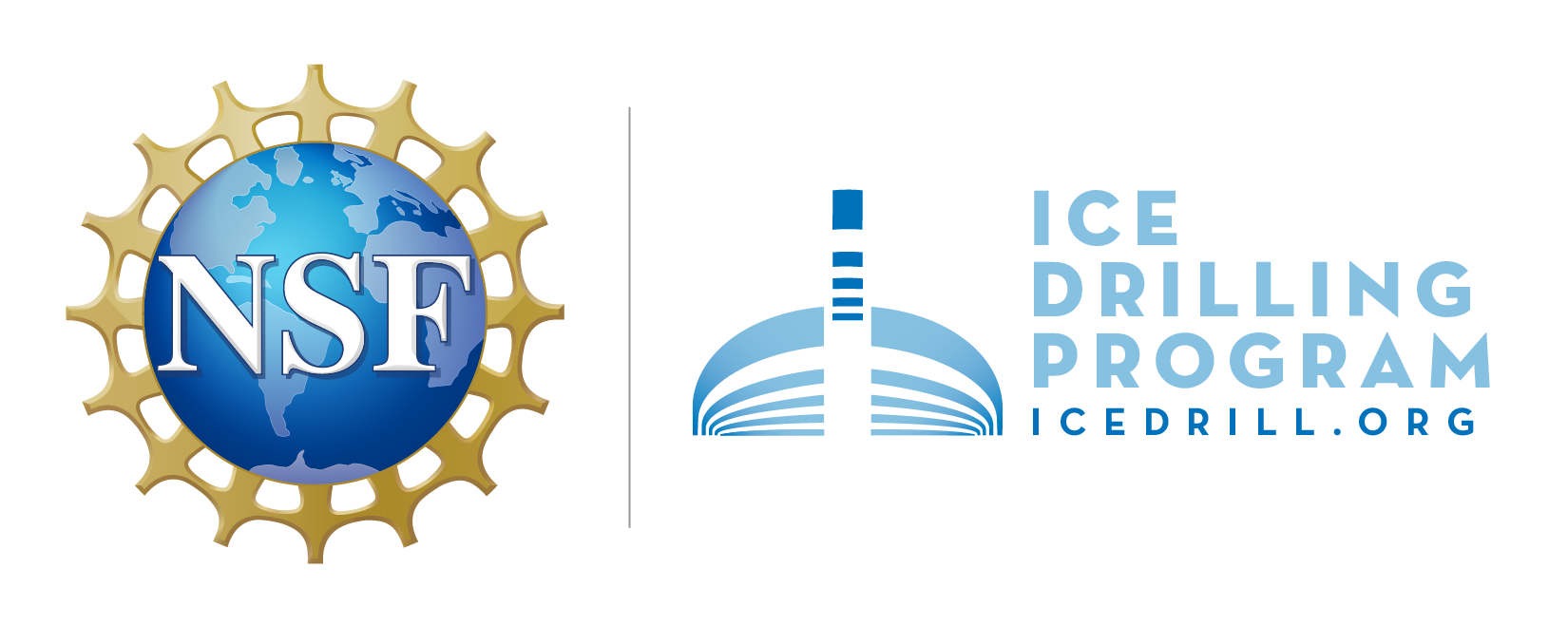January 5-8, 2022
Salt Lake City, UT and online
Sponsor: US Ice Drilling Program
Conveners: Jessica Badgeley, Asmita Banerjee, T.J. Fudge, Bess Koffman, Summer Rupper, Katie Wendt
Application Deadline: September 30, 2021
Thank you to everyone who applied to ICECReW. All applicants have been sent notifications from icecrewworkshop@gmail.com. If you have not received a response, please contact tjfudge@uw.edu.
Results
In 2022, the US National Science Foundation, via the Ice Drilling Program, funded a workshop for US early-career researchers to become more involved in the ice-core community. The Ice Core Early Career Researchers Workshop (ICECReW) was held January 5-8, 2022, in Salt Lake City, Utah, and online. Participants met with established researchers to better understand outcomes of and resources available from past ice core projects, learn about opportunities to engage with future efforts, and connect with potential collaborators. Participants also produced the following series of articles, published in Past Global Changes Magazine, to help communicate ice core science to undergraduate students and ice core adjacent researchers:
- Editorial: Early-career perspectives on ice-core science
- From drilling to data: retrieval, transportation, analysis, and long-term storage of ice-core samples
- Putting the time in time machine: Methods to date ice cores
- Our frozen past: ice-core insights into earth's climate history
- Ice-core records of atmospheric composition and chemistry
- Fire trapped in ice: An introduction to biomass burning records from high-alpine and polar ice cores
- Ice-core records of human impacts on the environment
- The living record: considerations for future biological studies of ice cores
- Firn: Applications for the interpretation of ice-core records and estimation of ice-sheet mass balance
- What can deep ice, water, sediments, and bedrock at the ice–bed interface tell us?
- Ice-core constraints on past sea-level change
What
ICECReW is a professional development workshop sponsored by IDP for early-career researchers. The workshop was conceived by members of the IDP Ice Core Working Group, and it will be held both in-person and online. Participants will meet with established researchers to better understand outcomes of and resources available from past ice core projects, learn about opportunities to engage with future efforts, and connect with potential collaborators. Participants will also work together before, during, and after the workshop to develop two synthesis papers.
Who
ICECReW is intended for early-career researchers whose work contributes to the drilling, processing, or interpretation of ice core data. We broadly define “early career” as someone within 3 years of PhD (before or after completion), although exceptions are welcome. Participants must be affiliated with a U.S. institution to be eligible.
Deadlines
Applications are due on Sept. 30
Purpose
The ICECReW workshop has two primary goals:
- Career development: identify opportunities, develop new skills, and network with established and early-career researchers working in ice core related science.
- Synthesize the past, present, and future directions of ice core research: articulate the role that past ice core research has played in addressing societally relevant questions and explore future directions in the field.
Career development activities will be combined with collaborative sessions to identify topics for two synthesis papers that will address past ice core science outcomes and future directions – one intended for the scientific community and one aimed at a broader audience. Engaging collaboratively with ice core science will broaden the participants’ understanding of past and current ice core projects and spur future proposal writing. The writing of the synthesis papers will serve as an opportunity for early-career researchers to assess the state of ice core science and to consider their current and future work in the context of existing projects and the broad goals the ice core community has identified. Participants will have a chance to share their synthesis work with the broader ice core community at the Ice Core Working Group meeting in Spring 2022.
Format
The workshop will include both in-person and remote options. There are approximately 25 in-person spots for early-career researchers and a flexible number available for remote early-career participants. All accepted attendees (both remote and in-person) will participate in pre-workshop preparatory work. The workshop will engage participants in discussions, group work, and lectures. Established researchers and experts will be invited to inform participants of future projects and facilitate specific topical discussions. A subset of the lectures will be streamed online and open to participation from the broader ice core community.
While we hope to welcome participants in-person, we will continue monitoring the COVID-19 situation. We will update workshop safety protocols, schedule, and overall format as needed.
Agenda
Prior to the workshop, participants will be expected to prepare a 5-minute video presentation (e.g. an eLightning talk) in advance and also watch the presentations of others to serve as an introduction. We also anticipate participants will read a variety of scientific papers ahead of the meeting and will be prepared to talk about the past and future directions of ice core science.
Workshop:
- Wednesday, January 5: welcome dinner
- Thursday and Friday, January 6 and 7: workshop held on the University of Utah campus
- Saturday, January 8: breakfast, debrief, and optional local field trip
After the workshop, participants are invited to continue collaborative work on the two synthesis papers. Those who are interested are also welcome to present the results of the workshop and the current state of the synthesis papers at the Ice Core Working Group meeting in Spring 2022.
Logistics
- Travel: travel expenses for in-person attendees will be subsidized with the hope of fully covering expenses of all attendees.
- Lodging and meals: lodging and food expenses for in-person participants will be provided. The workshop hotel will be the University Guesthouse and Conference Center.
- COVID-19: we will continue monitoring the COVID-19 situation and update safety protocols and workshop format as needed.
- Childcare: childcare will be available. Please indicate your need for childcare services on your application, and we will follow up with you.
- Additional accommodations: we will work with you as best we can to provide accommodations. Please indicate your need for accommodations on your application, and we will follow up with you.
Application / Registration
Applications / registrations are due on September 30, 2021.
Thank you to everyone who applied to ICECReW. All applicants have been sent notifications from icecrewworkshop@gmail.com. If you have not received a response, please contact tjfudge@uw.edu.
Contact
If you have questions about the workshop, please contact the following people.
T.J. Fudge, University of Washington, tjfudge@uw.edu
Jessica Badgeley, University of Washington, badgeley@uw.edu
Meet the Team / Who We Are
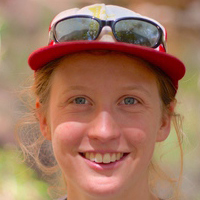
Jessica Badgeley
PhD Candidate
University of Washington
Research interests: past changes in polar climate and ice sheets, temperature-sensitive ice core records, data assimilation

Asmita Banerjee
PhD Candidate
Rice University
Research interests: past climates, stable isotope geochemistry, climate chemistry modeling
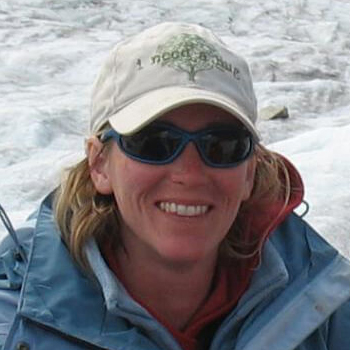
Summer Rupper
Professor
University of Utah
Member of the Ice Core Working Group
Research interests: past climates, mountain glaciers and climate, glacier mass balance and dynamic modeling
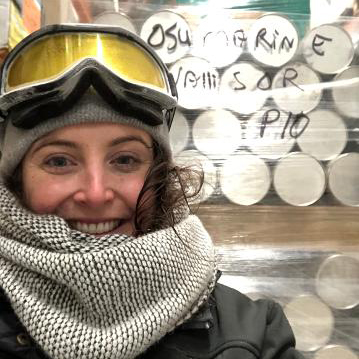
Katie Wendt
Postdoctoral Scholar
Oregon State University
kathleen.wendt@oregonstate.edu
Research interests: CO2, geochronology, abrupt climate change

T.J. Fudge
Research Assistant Professor
University of Washington
Chair of the Ice Core Working Group
Research interests: Ice core timescales, climate histories, and choosing new sites
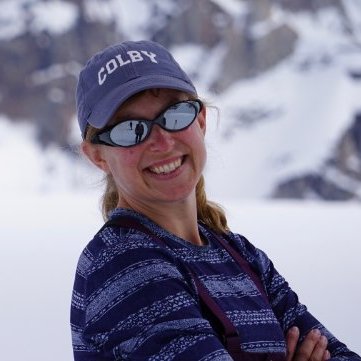
Bess Koffman
Assistant Professor of Geology
Colby College
Member of the IDP Science Advisory Board
Research interests: Atmospheric dust and volcanic ash, Sr-Nd-Pb radiogenic isotopes, Fe fertilization, past atmospheric circulation
